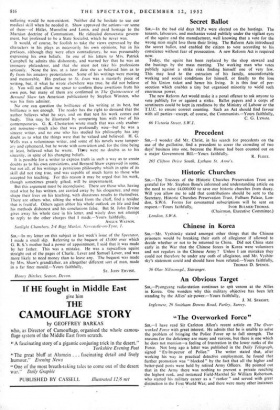Secret Ballot
Set, —In the bad old days M.P.s were elected on the hustings. The tenants, labourers, and mechanics voted publicly under the vigilant eyes of the squire and the manufacturer, well knowing that a vote for the wrong man might lose them their living. The Reform Acts introduced the secret ballot, and enabled the citizen to vote according to his conscience without fear of prosecution. A new Reform Act is required now.
Today, the squire has been replaced by the shop steward and the hustings by the mass meeting. The working man who votes publicly against a strike risks finding himself one of very few. This may lead to the ostracism of his family, uncomfortable working and social conditions for himself, or finally to the loss of his Union ticket and hence his living. It is this fear of per- secution which enables a tiny but organised minority to wield such enormous power.
The new Reform Act would make it a penal offence to ask anyone to vote publicly for or against a strike. Ballot papers and a corps of scrutineers could be kept in readiness by the Ministry of Labour or the T.U.C. to ensure correct counting. Such an Act should find favour with all parties—except, of course, the Communists.—Yours faithfully, C. G. LYNAM. 66 Victoria Street, S.W.I.


































 Previous page
Previous page